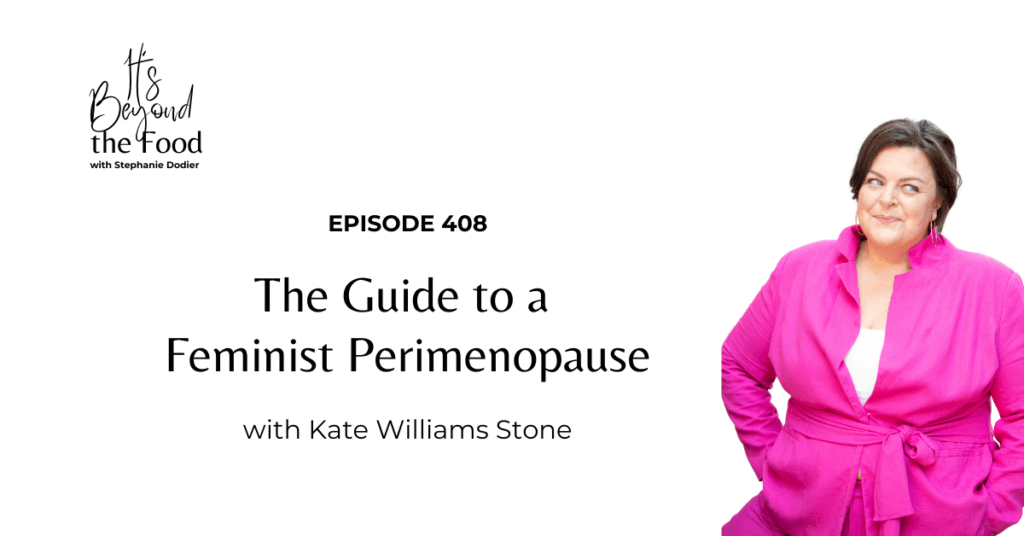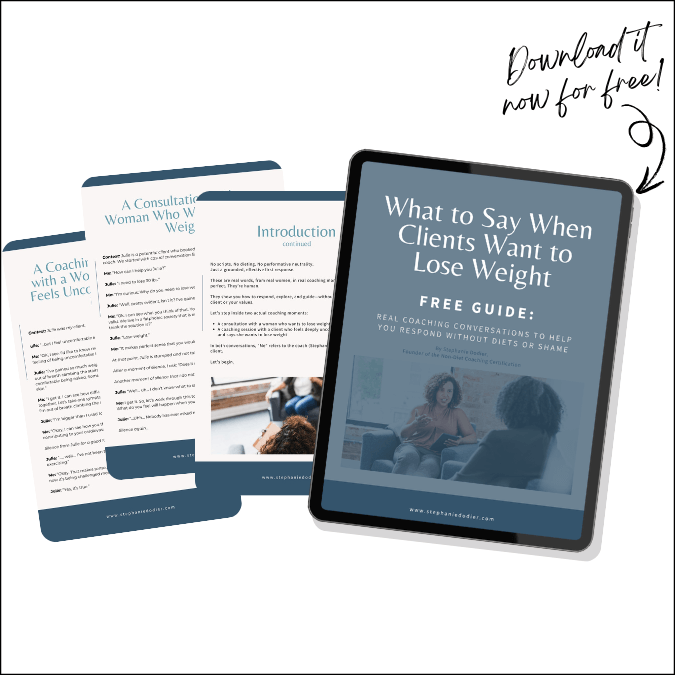I recently had the pleasure of interviewing Kate Williams Stone about feminist perimenopause. Our conversation shed light on the current approach to perimenopause and why it needs to change.
The Problem with the Current Perimenopause Narrative
Kate highlighted that the current narrative around perimenopause is problematic. It’s similar to diet culture, suggesting that our bodies are broken and need fixing. This approach promotes the idea of “hormone balance,” which is physically impossible during perimenopause.
Understanding Perimenopause
Perimenopause is a natural transition, much like puberty. It’s characterized by fluctuating hormones, not a state of balance. This roller coaster of hormones is normal and expected.
The Medical System’s Shortcomings
One of the main issues Kate pointed out is the lack of education and research on perimenopause in the medical field.
Limited Research on Female Bodies
Surprisingly, female bodies have only been studied for the last 30 years in medical research. This gap in knowledge has led to a lack of understanding and proper care for perimenopausal women.
Inadequate Medical Training
Many doctors receive minimal training on perimenopause and menopause. This results in dismissive attitudes and a lack of proper support for women experiencing symptoms.
The Wellness Culture Trap
In response to the medical system’s shortcomings, many women turn to wellness culture for answers. However, this can lead to another set of problems.
Non-Evidence Based Solutions
Kate warned about non-evidence based at-home hormone testing and expensive supplement protocols. These solutions often prey on women’s desperation for answers without providing real help.
A Feminist Approach to Perimenopause
Instead of seeking a “fix” for perimenopause, Kate suggests a shift in mindset and approach.
Becoming Your Own Expert
Kate encourages women to become experts on their own bodies. This involves tracking cycles, noting symptoms, and understanding personal patterns.
Building a Support Team
Just as with pregnancy, Kate recommends building a support team for perimenopause. This might include a doctor, a perimenopause coach, an acupuncturist, or a yoga teacher.
Addressing Body Changes
Body changes during perimenopause are normal. Kate emphasizes the importance of challenging internalized fatphobia and ageism during this time.
The Power of Cognitive Behavioral Therapy
Interestingly, cognitive behavioral therapy has been proven effective for managing hot flashes and sleep disturbances. This underscores the importance of addressing thought patterns and beliefs about perimenopause.
Reframing Perimenopause as a Transition
I propose viewing perimenopause as a preparation for the next phase of life. It’s an opportunity to examine our lives and set intentions for our future selves.
Challenging Societal Expectations
This transition period allows us to challenge societal expectations about aging women. It’s a chance to redefine what it means to be an older woman in our society.
Embracing a Feminist Perimenopause
A feminist approach to perimenopause involves:
1. Rejecting the narrative that our bodies are broken
2. Becoming informed about our own bodies
3. Challenging societal expectations and ageism
4. Building a supportive community
By embracing these principles, we can transform perimenopause from a dreaded phase to an empowering transition.
Remember, perimenopause is not a problem to be fixed, but a natural transition to be understood and embraced. By adopting a feminist perspective, we can reclaim this phase of life and use it as a launching pad for our future selves.
Kate Williams Stone (she/her) is a non-diet health and life coach who specializes in helping women calm the mental chatter around their perimenopause symptoms so they can stop wondering, “What is happening to my body?” and start feeling energized and calm.
What you’ll learn listening to this episode on feminist perimenopause:
- Why the current medical approach to perimenopause is problematic
- How to become an expert on your own perimenopausal body
- The importance of challenging internalized fatphobia and ageism
- How to build a supportive perimenopause team
Mentioned in the show:
Kate Stone’s What Every Woman Should Know About Perimenopause Before Her Gynecologist Appointment






